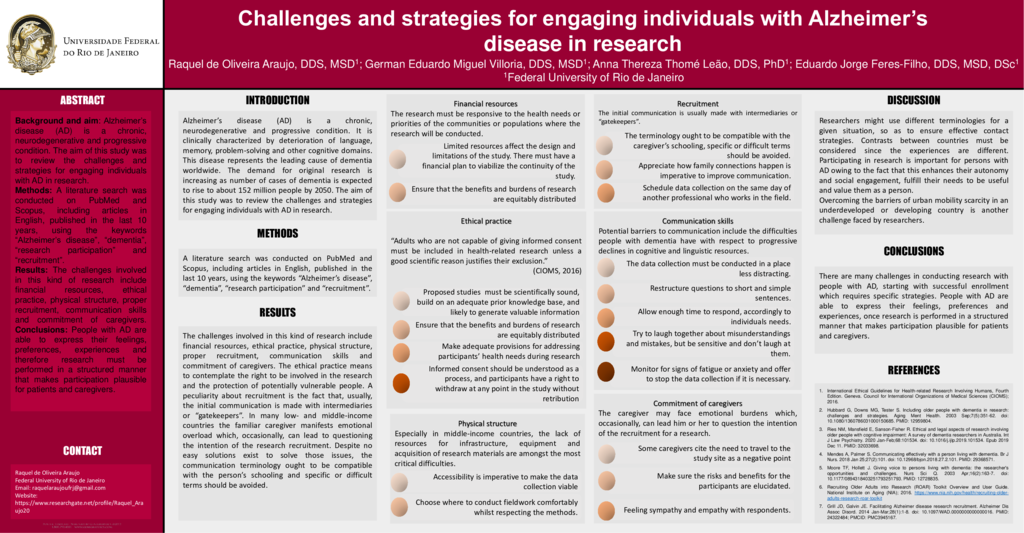Background and aim: Alzheimer’s disease (AD) is a chronic, neurodegenerative and progressive condition. It is clinically characterized by deterioration of language, memory, problem-solving and other cognitive domains. This disease represents the leading cause of dementia worldwide. The demand for original research is increasing as number of cases of dementia is expected to rise to about 152 million people by 2050. The aim of this study was to review the challenges and strategies for engaging individuals with AD in research. Methods: A literature search was conducted on PubMed and Scopus, including articles in English, published in the last 10 years, using the keywords “Alzheimer’s disease”, “dementia”, “research participation” and “recruitment”. Results: The challenges involved in this kind of research include ethical practice, proper recruitment, financial resources, physical structure, communication skills and commitment of caregivers. The ethical practice means to contemplate the right to be involved in the research and the protection of potentially vulnerable people. A peculiarity about recruitment is the fact that, usually, the initial communication is made with intermediaries or “gatekeepers”. In many low- and middle-income countries the familiar caregiver manifests emotional overload which, occasionally, can lead to questioning the intention of the research recruitment. Despite no easy solutions exist to solve those issues, the communication terminology ought to be compatible with the person’s schooling and specific or difficult terms should be avoided. Researchers might use different terminologies for a given situation, so as to ensure effective contact strategies. Contrasts between countries must be considered since the experiences are different. Participating in research is important for persons with AD owing to the fact that this enhances their autonomy and social engagement, fulfill their needs to be useful and value them as a person. Conclusions: Albeit there are many challenges in conducting a research with people with AD, there exist viable strategies for successful enrollment. People with AD are able to express their feelings, preferences, experiences and therefore research must be performed in a structured manner that makes participation plausible for patients and caregivers.
- 50 views




